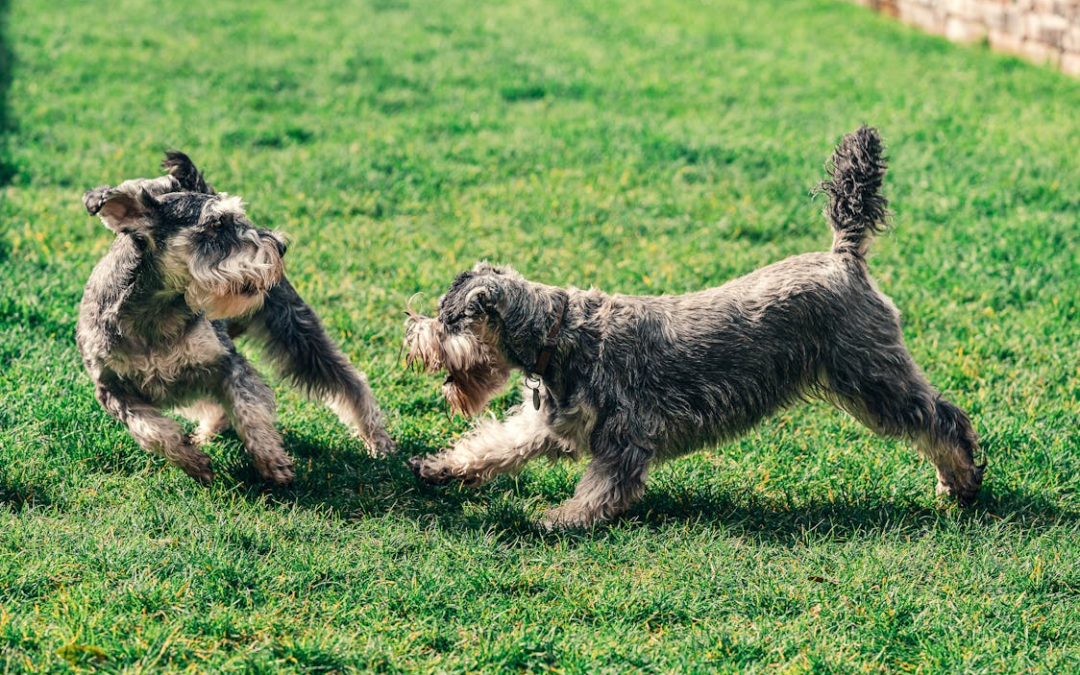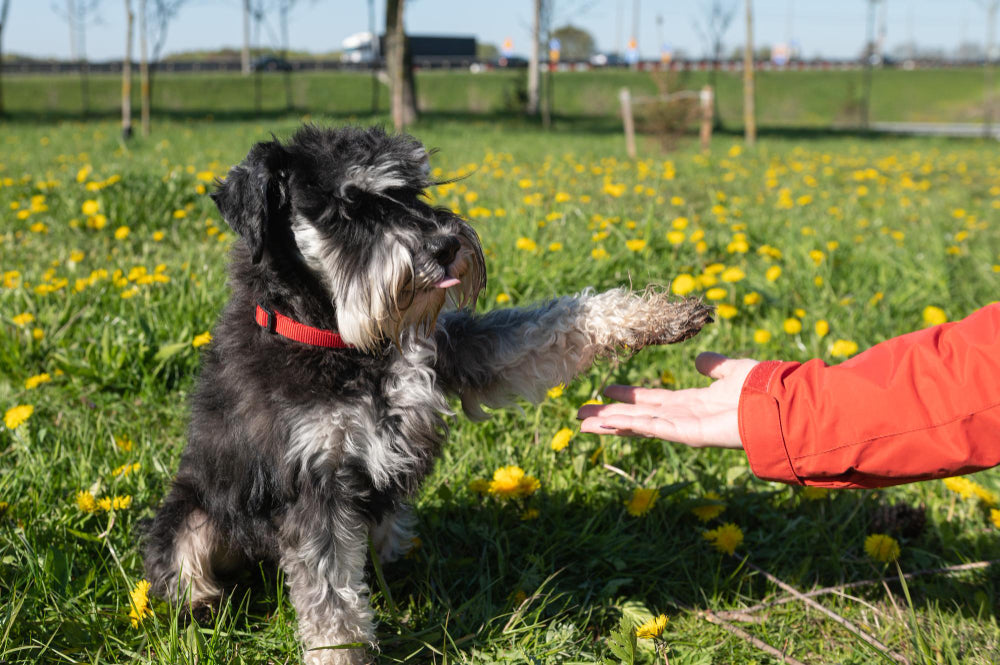From the wiry, playful Miniature schnauzer to the imposing Standard Schnauzer, these iconic dogs with their distinctive facial hair have captured the hearts of millions worldwide. More than just their appearance, Schnauzers are known for their intelligence, loyalty, and unique personalities. But beneath their charming exteriors lies a breed that can be demanding, requiring consistent training and understanding.
In this article, we will delve into the intricate world of Schnauzer behavior, exploring their inherent traits, potential challenges, and how to foster a harmonious relationship with your furry friend. So if you’re a proud Schnauzer owner or considering adding one to your family, read on to gain a better understanding of their temperament and how to best manage it.
Schnauzer Temperament: An Overview
The Schnauzer’s origins can be traced back to Germany, where they were originally bred as working dogs. Their primary purpose was to accompany butchers and farmers, serving as ratters and guardians. This history is reflected in their inherent traits:
Intelligence
Schnauzers are renowned for their sharp minds, eager to learn and quick to pick up new commands. This intelligence, however, can sometimes be channeled into mischief if not properly directed. With proper training and mental stimulation, Schnauzers can excel in various activities such as obedience, agility, and tracking.
Loyalty
Loyalty is deeply ingrained in the Schnauzer’s nature. They form deep bonds with their families, exhibiting unwavering devotion and protectiveness. This makes them excellent guard dogs, always ready to defend their loved ones.
Alertness
Their keen senses make them excellent watchdogs. Schnauzers are quick to notice any change in their environment and will alert their owners with a bark. This trait also makes them great companions for outdoor activities such as hiking or camping, as they are always on the lookout for potential dangers.
Understanding Schnauzer Intelligence and Trainability

As mentioned earlier, Schnauzers are highly intelligent dogs. According to Stanley Coren’s book “The Intelligence of Dogs,” they rank 12th out of 138 breeds in terms of working and obedience intelligence. This means that they can learn new commands with fewer than five repetitions and obey them 95% of the time or better.
However, their intelligence can also be a double-edged sword. It means that they can quickly pick up bad habits if not appropriately trained and managed. Schnauzers can become bored easily, leading to destructive behavior if they do not receive enough mental stimulation.
To prevent this, it is crucial to start training your Schnauzer early on. Positive reinforcement techniques work well with this breed, as they respond well to praise and rewards. Consistency is also key, as Schnauzers thrive on routine and can become confused if the rules keep changing.
Socialization is another essential aspect of training for Schnauzers. As natural guard dogs, they may show aggression towards unfamiliar people or animals if not socialized from a young age. Exposing them to different environments, people, and other animals will help them develop into well-rounded dogs.
Socialization and Early Training for Schnauzers
Schnauzers are known for their fierce loyalty and devotion to their families. While this makes them excellent companions, it can also lead to separation anxiety if they are not properly socialized. Separation anxiety is a common behavioral issue among Schnauzers and can manifest in various ways, such as excessive barking, destructive chewing, and even escape attempts.
To avoid separation anxiety, it is essential to introduce your Schnauzer to being alone from a young age. Start with short periods and gradually increase the time as they get used to it. Providing them with interactive toys or leaving a piece of clothing with your scent can also help ease their anxiety.
Another vital aspect of socialization for Schnauzers is exposing them to other dogs. While they may be friendly and playful with their human family, they can sometimes be aggressive towards other dogs. Early socialization can help prevent this behavior and enable your Schnauzer to make furry friends.
Common Schnauzer Behavioral Issues and Solutions

Like any breed, Schnauzers are prone to certain behavioral issues that require attention and management. Let’s take a look at some of the most common ones and how to address them.
Barking
Schnauzers are known for being vocal, and barking is one of their favorite ways to communicate. However, excessive barking can become a nuisance for both you and your neighbors. To curb excessive barking, it is essential to provide your Schnauzer with enough physical and mental stimulation. A tired dog is a quiet dog, so make sure they get enough exercise and playtime. Additionally, training them to bark on command and rewarding them for stopping barking can also help.
Digging
As former rat hunters, Schnauzers have a natural instinct to dig. If left unattended, they may turn your backyard into a minefield. To prevent this, provide them with a designated digging area in your yard, such as a sandpit. You can also try redirecting their digging to a specific spot by burying toys or treats there. Consistency and supervision are key when addressing this behavior.
Jumping
Schnauzers are energetic and playful dogs, which can lead to them jumping up on people. While it may seem cute when they’re puppies, it can become dangerous and uncomfortable when they grow older. To address this behavior, start training your Schnauzer early on to keep all four paws on the ground when greeting people. Teaching them the “off” command and rewarding them for good behavior can also help.
Schnauzer Activity Levels and Exercise Needs

Schnauzers are moderate to high-energy dogs, depending on their size. Miniature Schnauzers are more active than Standard Schnauzers, but both require daily exercise as part of their routine. Without proper exercise, Schnauzers can become bored and restless, leading to destructive behaviors such as chewing or digging.
Aim for at least 30 minutes of physical activity each day, such as walks, runs, or playtime in the backyard. Mental stimulation is also crucial, so consider incorporating activities such as puzzle toys, hide-and-seek games, or obedience training into your Schnauzer’s routine.
It is worth noting that Schnauzers are not well-suited for apartment living. They require ample space to run and play, making them better suited for homes with a yard.
Schnauzer Grooming and Its Impact on Behavior
One of the most distinctive features of Schnauzers is their facial hair, which gives them their iconic mustache and eyebrows. While it may be adorable, it requires regular grooming to keep it in check. In addition to their facial hair, Schnauzers have a wiry coat that needs occasional trimming and brushing to avoid matting.
Grooming is not just about maintaining their appearance; it can also affect their behavior. If left ungroomed, Schnauzers can become irritable and uncomfortable, leading to undesirable behaviors. Regular brushing helps distribute natural oils, keeping their skin and coat healthy. It also allows you to check for any skin irritations or infections.
Bringing your Schnauzer to a professional groomer every few months is also recommended. They can trim their coat, clean their ears, and clip their nails, ensuring that they are comfortable and free from any hygiene-related issues.
Conclusion
Schnauzers are a unique and lovable breed with a rich history and distinctive personality. Their intelligence, loyalty, and alertness make them excellent companions, but they also require consistent training and understanding to thrive.
By understanding their inherent traits and addressing any potential behavioral issues early on, you can foster a harmonious relationship with your Schnauzer. Remember to provide them with enough mental and physical stimulation, socialize them from a young age, and keep up with their grooming needs. With the right care and attention, your Schnauzer will be a happy and well-behaved member of your family.
